Browse
The Seventh African Higher Education Week & RUFORUM Triennial Conference 2021
The Seventh Africa Higher Education and RUFORUM Triennial Conference is set under the theme “Operationalising Higher Education for Innovation, Industrialisation, Inclusion and Sustainable Economic Development in Africa: A call for action” that responds to the urgent needs for the African governments, development partners, private sector and citizenry to take actions to invest in higher education. This Triennial conference is convened with the following objectives:
Catalyse investment in Higher Education for human capital development in Africa
Promote international linkages and partnerships for excellence in Higher Education
Strengthen collaboration and mutual learning to spur innovation and industrialisation for economic transformation in Africa
Promote youth employment and skills acquisition for development
Strengthen University-Private sector business linkages
The First RUFORUM Triennial Conference, the 16th Annual General Meeting and 7th African Higher Education Week will be held in the Republic of Benin at Centre International de Conférences et Palais des Congres de Cotonou, Benin from 6th-10th December 2021. The five-day conference will bring together policy makers including Ministers and Technical Experts, Higher Education Leaders in Africa, development partners, private sector leaders, researchers, innovators, students, and farmer organisations, among others. Approximately 1000 delegates are expected from across the world.
Read more

By: Raquel Acosta
Due Date: Dec, 6, 2021
Education
Leave a comment
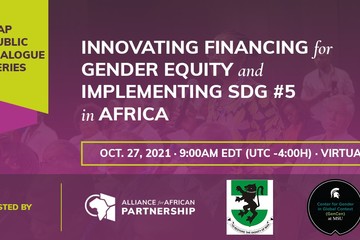
Public Dialogue “Innovating Financing for Gender Equity and Implementing SDG #5 in Africa”
AAP is excited to be hosting our next Public Dialogue “Innovating Financing for Gender Equity and Implementing SDG #5 in Africa” on Wednesday, October 27th at 9:00am-10:30 EDT. This dialogue session will be co-hosted by our affiliates at the University of Nigeria, Nsukka and those at the Michigan State University Center for Gender in Global Context. This session will examine innovative financial strategies for African universities to engage across all sectors and the impact these engagements are having on the transformation of gender equity and the implementation of sustainable development goal #5 (SDG). AAP recognizes that universities are now seeing themselves as catalysts for positive change in their communities and beyond, and is proud to be a part of this progress.
To learn more: https://aap.isp.msu.edu/engage/aap-public-dialogue-series/fall-2021-public-dialogue-series/
To register:
https://msu.zoom.us/webinar/register/8916334617675/WN_noPMv7TISH6MbCUQi07K6g
Read more

By: Raquel Acosta
Due Date: Oct, 27, 2021
Culture and society
Leave a comment
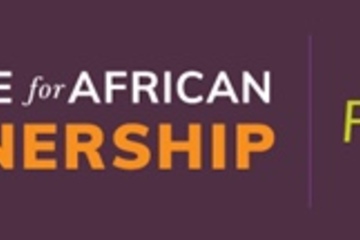
Call for Thought Pieces Regarding Race and Ethnicity in Africa and the Diaspora
AAP is issuing a call for thought pieces from anywhere in the world that are short, critical reflections of issues around race and ethnicity in higher education institutions as well as other key stakeholder organizations in Africa and the African Diaspora.
The first deadline for thought piece summary (up to 500 words) is Oct. 30, 2021. Summaries must include title, text, author’s name and affiliation.
For the full call for contributions and submission details, visit the link below.
https://aap.isp.msu.edu/engage/aap-perspectives/
Read more

By: Raquel Acosta
Due Date: Oct, 30, 2021
Culture and society
+1
Leave a comment
No Preview Available
CFA: Endangered Archives Programme Call for Applications is Open
The Endangered Archives Programme is now accepting preliminary applications for the next annual funding round – the deadline for submission of preliminary applications is Monday 15 November 2021 at 12 noon GMT. Full details of the application procedures and documentation are available on the EAP website (https://eap.bl.uk/applicants).
The Programme has funded over 430 projects in 90 countries and has helped preserve manuscripts, rare printed books, newspapers and periodicals, audio and audio-visual materials, photographs and artwork. The programme aims to digitise archives at risk of loss or decay and, where appropriate, to relocate the material to a safe local archival home. The digital copies are deposited with the local archival partners, and are all available for researchers to access freely through the British Library website.
This year, we are accepting applications through our online portal between 1st and 15th November. However, in the meantime, we are providing Word and PDF documents for applicants to perfect their preliminary applications before the online submission.
If you know of an archive in a region of the world were resources are limited, we really hope you will apply. If you have any questions regarding the conditions of award or the application process, consult our website (https://eap.bl.uk) or contact them at endangeredarchives@bl.uk
Read more

By: Raquel Acosta
Due Date: Nov, 15, 2021
Education
Leave a comment
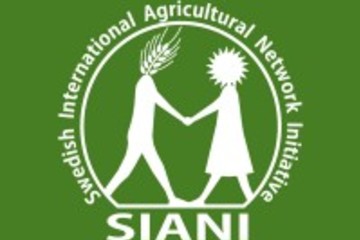
Agri4D 2021 conference "Food Systems for New Realities"
The Agri4D 2021 conference "Food Systems for New Realities" will take place at SLU (virtually) on 28-30 September. The Agri4D conference has been Organised by SLU Global at the Swedish University of Agricultural Sciences (SLU) and the Swedish International Agriculture Network Initiative (SIANI), with support from the Swedish International Development Cooperation Agency (Sida). Agri4D will bring together researchers, policy makers and practitioners to engage actively with the challenges of food systems with a focus on low-income contexts in a globalised world. The conference aims to be a platform to take stock of the current knowledge frontier, connect science to policymaking and practice, and spark new collaborations.
For more information please visit: https://www.slu.se/en/collaboration/international/slu-global/agri4d-conference/.
To register:
Agri4D - Agricultural Research for Development Conference 2021 (akademikonferens.se)
Read more

By: Raquel Acosta
Due Date: Sep, 28, 2021
Agri-food systems
Leave a comment
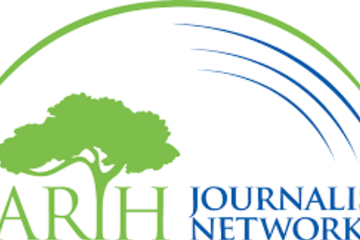
Biodiversity Media Grants 2021
Many of the threats currently facing global biodiversity have been exacerbated during the Covid-19 pandemic. Funding for critical conservation and ecotourism projects has been redirected or lost, economic growth has been prioritized over protecting wild spaces, and media coverage of the outbreak has dwarfed reporting on conservation.
Indeed, the biodiversity crisis is one that impacts all of humanity and has not received the media coverage that it deserves. Media organizations and reporters have an important part to play in raising public awareness of biodiversity and conservation issues, and highlighting potential solutions to these problems.
As a part of the Earth Journalism Network’s Biodiversity Media Initiative project, we are pleased to announce a second round of grant opportunities for journalist networks, media organizations, civil society organizations or academic institutions that are working to improve media coverage of biodiversity and conservation issues in countries where information is most under threat and most urgently needed.
The Biodiversity Media Grants will support projects that:
Build the capacity of journalism networks and media organizations to report on biodiversity and conservation issues
Carry out biodiversity and/or conservation training activities for journalists
Build internal capacity
Organize local networks around these issues
We are especially interested in projects that focus on conservation in biodiversity-rich regions of the world, such as the Amazon, Central Africa and Southeast Asia.
For more information on the funding opportunity or to apply, visit the Earth Journalism Network website
Read more
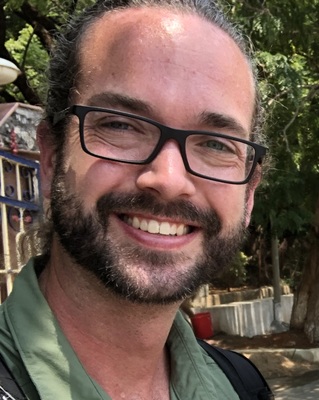
By: Derek Tobias
Due Date: Oct, 15, 2021
Water, energy, and the...
Leave a comment
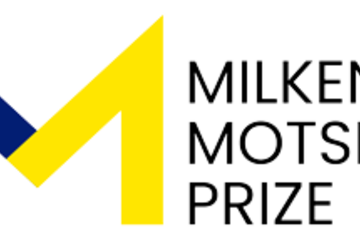
The Milken-Motsepe Prize in AgriTech
The inaugural Milken-Motsepe Prize focuses on accelerating progress towards Sustainable Development Goals (SDGs) 1 and 2: no poverty and zero hunger. The Milken-Motsepe Prize in AgriTech is a global competition for innovative solutions to increase economic value to farmers, from seed to sale. Registration is open to anyone.Winning teams will increase net economic value to small and medium-sized farms by:
Developing innovative technology solutions for any stage of the food system, from seed to sale
Designing a viable business model
Increasing farm productivity and/or decreasing post-harvest loss
Registration is free and open to anyone, with a $1 million grand prize available for the winning team, and $1 million in additional prizes.
For more information or to apply, please visit the Milken-Motsepe Prize webpage.
Read more

By: Derek Tobias
Due Date: Dec, 8, 2021
Agri-food systems
Leave a comment
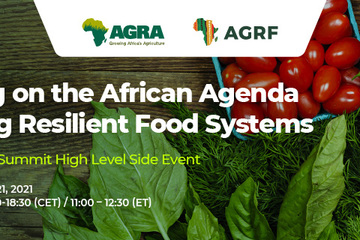
UN Food Systems Summit High Level Side Event Delivering on the African Agenda in Building Resilient
During the 2021 AGRF Summit 6-10 September, six African presidents joined by 8,000 delegates aligned with the African common position on building resilient food systems. Their shared vision will help achieve a transformation to improve livelihoods, defeat hunger and tackle malnutrition.
To highlight the national pathways and partner actions, on September 21 from 6–7:30 PM (EAT) AGRA and the AGRF will host “Delivering on the African Agenda in Building Resilient Food Systems” a side event ahead of the UN Food Systems Summit. It will address African challenges and solutions in the transition to resilient food systems. Following the declaration (https://agrf.org/summit#summit-declaration) of the AGRF, it will consider what must be done to turn political ambition into reality.
The event will be moderated by William Asiko, Managing Director of the Rockefeller Foundation’s Africa Region Office.
Provisional speakers include:
H.E. Hailemariam Dessalegn, Former Prime Minister of Ethiopia, Chair AGRF Partners Group and Chair AGRA Board
Jim Barnhart, Assistant to the Administrator, Bureau for Resilience and Food Security, USAID
Ms. Evangelista Chekera, CEO Passion Poultry
Hon. Peter Munya, Cabinet Secretary, Ministry of Agriculture, Livestock, Fisheries and Cooperatives, Republic of Kenya
Elizabeth Nsimadala, President, Pan-Africa Farmers Organization (PAFO)
H.E. Ken Ofori-Atta, Minister for Finance and Economic Planning, Republic of Ghana
H.E. Josefa Sacko, Commissioner Agriculture, Rural Development, Blue Economy and Sustainable Environment, African Union Commission
Jai Shroff, UPL Limited CEO
Rodger Voorhies, President, Global Growth and Opportunity Division, Bill and Melinda Gates Foundation
Please join us on September 21 at 6pm EAT (Nairobi time).
Click here to register for the event.
Read more

By: Derek Tobias
Due Date: Sep, 21, 2021
Agri-food systems
Leave a comment
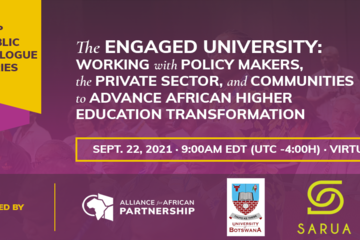
AAP Public Dialogue Series 2021
AAP is excited to be hosting our next Public Dialogue “The Engaged University: Working with policy makers, the private sector, and communities to advance African higher education transformation” on Wednesday, September 22nd at 9:00am-10:30 EDT. This dialogue session will be co-hosted by our affiliates at @The University of Botswana and those at @SARUA. This session will examine innovative strategies for African universities to engage across all sectors and the impact these engagements are having on the transformation of the African higher education sector. AAP recognizes that universities are now seeing themselves as catalysts for positive change in their communities and beyond, and is proud to be a part of this progress.
This series will be done with the help of @University World News as AAP’s media partner.
Read more

By: Raquel Acosta
Due Date: Sep, 22, 2021
Education
Leave a comment
SUPPORT TO YOUTH DEVELOPMENT AND EMPOWERMENT TO BECOME SELF RELIENCE.
most of the youth in northern uganda were affected by the 20 years war led by lord resistant army. currently youth have gone back to settle and become productive but they are being hindered by inadiquate knowledge and high cost of production. this has made most of thye youth most especially young girls to get pregnant as well as being at high risk of contracting HIV/AIDS. most ladies have resulted to selling sex to earn aliving for their young kids and boys has resulted to taking scopion and marajwana. in the vision, this youth can still be transform and become productive through providing hand on skills like, hair dressing trainning, tailoring, mechanics and cake production etc. most of the youth are longing to get the skills but they cannot afford the cost of paying tiution.
in this partenship, acquiring machine like sawing machine from donation. the organisation do have space,few staff that can provide trhe training.
Read more

By: ODUR MOSES
Due Date: Dec, 30, 2021
Youth empowerment
Leave a comment
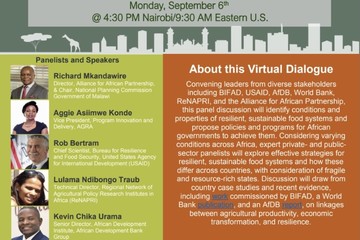
AGRF 2021 Summit: Agricultural Transformation for Sustainable and Resilient Food Systems
AAP is excited to announce the “Agricultural Transformation for Sustainable and Resilient Food Systems” session at The AGRF Pre-Summit event on Monday, September 6th. AGRF and its partners organized a three-day summit, September 7-10 around the theme of “Pathways to Recovery and Resilient Food Systems,” and this will be just one of the many important discussions occurring. The AGRF 2021 Summit is a defining moment in highlighting and unlocking the policy, and financial commitments and innovations the continent has made and that it continues to work towards achieving. AAP recognizes the importance of these sustainable development goals and is looking forward to the participation of our colleagues throughout the Summit.
Register for this year’s summit: https://agrf.org/
Read more

By: Raquel Acosta
Due Date: Sep, 6, 2021
Agri-food systems
Leave a comment
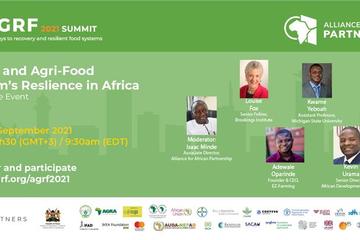
AGRF 2021 Summit
AAP Africa Office Associate Director, Isaac Minde, will be moderating the “Youth and Agri-food System’s Resilience in Africa” session at The AGRF Summit Pre-Day event on Sept. 6th. AGRF and its partners organized a three-day summit, September 7-10 around the theme of “Pathways to Recovery and Resilient Food Systems”. The AGRF 2021 Summit is a defining moment in highlighting and unlocking the policy, and financial commitments and innovations the continent has made and that it continues to work towards achieving. AAP recognizes the importance of these sustainable development goals and is looking forward to the participation of our colleagues throughout the Summit.
Register for this year’s summit: https://bit.ly/3xVWZp2
Read more

By: Raquel Acosta
Due Date: Sep, 6, 2021
Agri-food systems
+1

Leave a comment